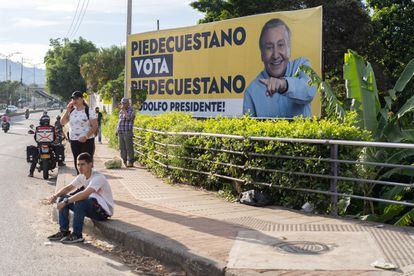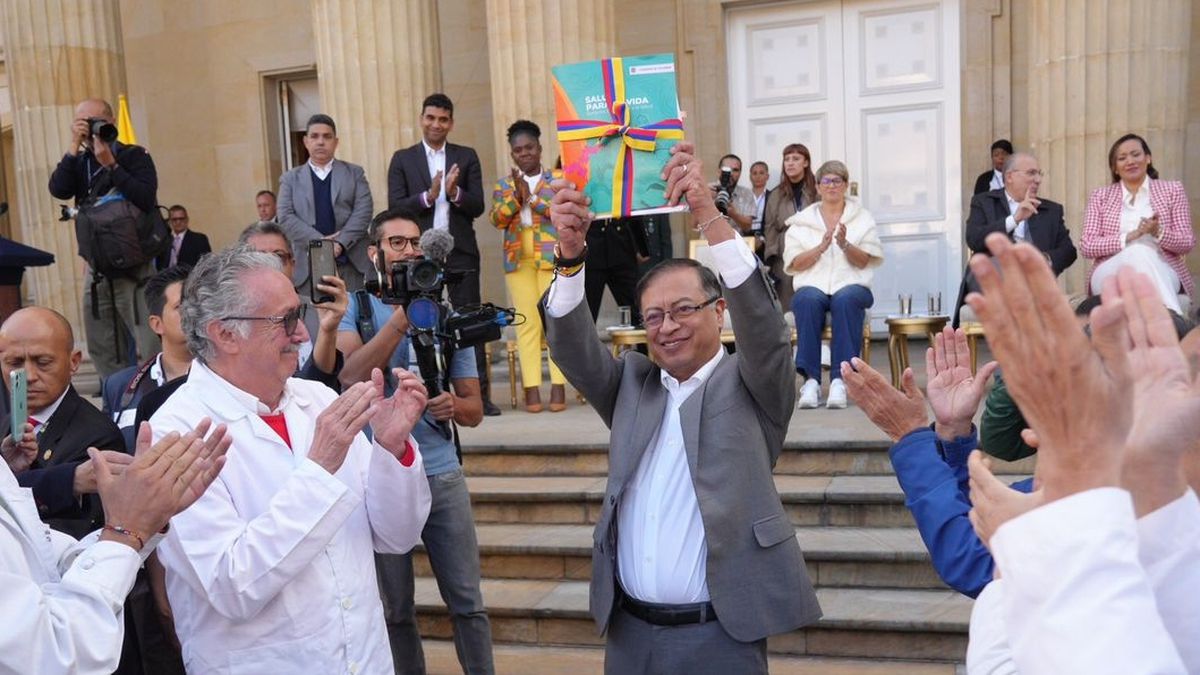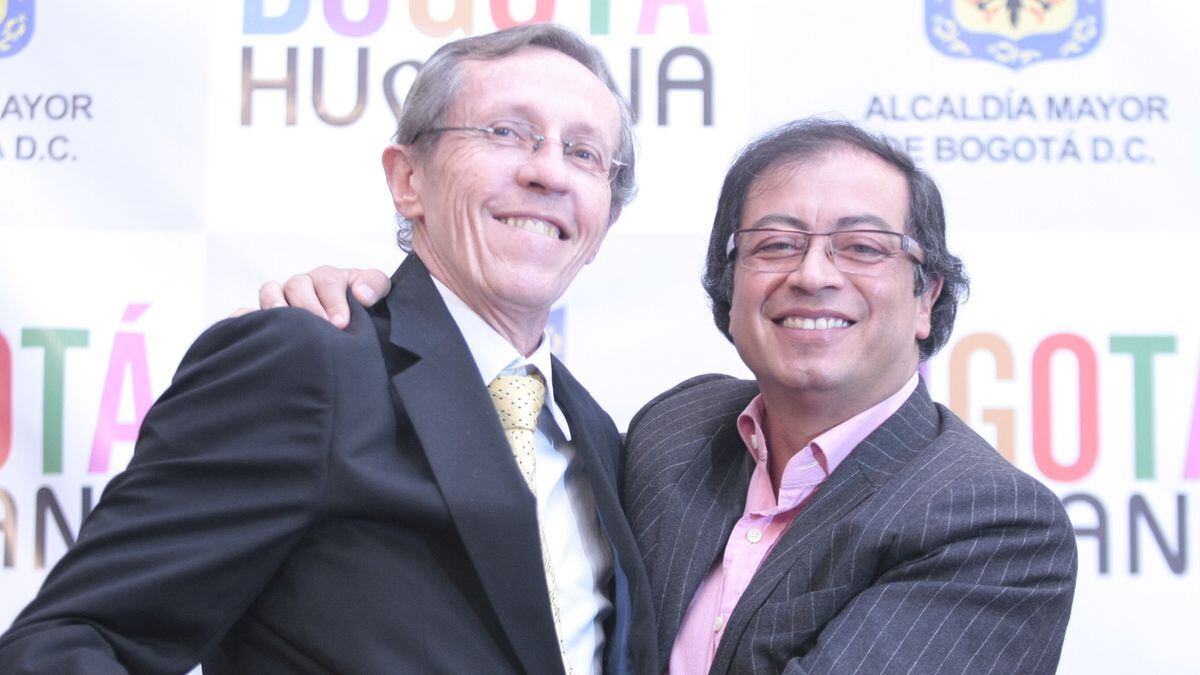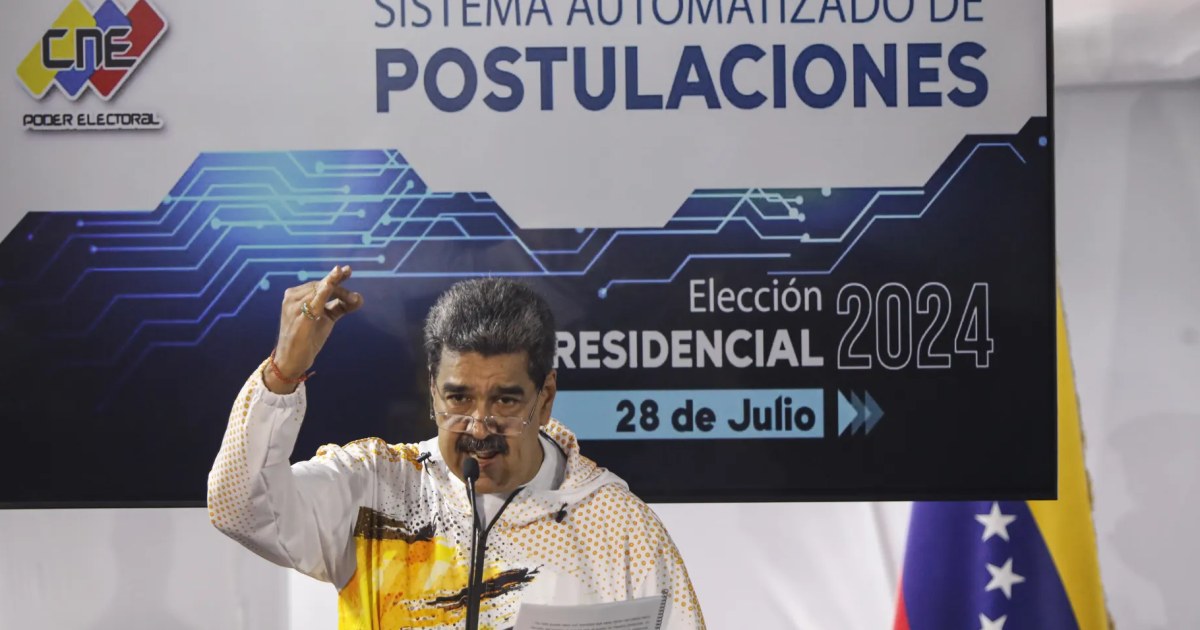A campaign poster shows Rodolfo Hernández, an independent presidential candidate, in Piedecuesta, Colombia. NATALIA ORTIZ MANTILLA (Bloomberg)
The presidential campaign in Colombia is marked by fear and uncertainty.
Gustavo Petro and Rodolfo Hernández, the two candidates, are tied in their chances of reaching the presidency, according to the polls, and both generate enormous fear or rejection in a large part of the population.
But there is one fear that rises above all others.
The possibility that the one who reaches the presidency can repeal the prohibition that prevents re-election.
If Álvaro Uribe did it at the time, and later Juan Manuel Santos took advantage of it, why couldn't it happen again?
EL PAÍS has spoken with several experts and they all agree that it is a very remote possibility.
When Santos returned to constitutionally prohibit re-election, he shielded the article in such a way that only a popular referendum or a constituent assembly,
It is very difficult for Gustavo Petro or Rodolfo Hernández to remain in power through the existing legal channels in Colombia.
This is what Rodrigo Uprimny, former auxiliary magistrate of the Constitutional Court and member of the United Nations Committee on Economic, Social and Cultural Rights, believes.
"It is not easy at all that today either of the two candidates can stay four more years in the presidency," Uprimny explains by phone.
Héctor Riveros, an expert lawyer in constitutional law, agrees: "the possibility of a re-election is very remote, almost impossible."
The certainties of expert lawyers contrast with the uncertainties and fears of citizens.
In social networks, WhatsApp chains and family conversations in recent weeks there is a concern that is repeated frequently.
"Gustavo Petro is going to be screwed in power," say those who are afraid that the leftist candidate will seek re-election if he is president.
On the other side, Petro's supporters express the same concern about his opponent: "Rodolfo Hernández is going to change the Constitution to stay in government for four more years."
Although fear is similar, it has different origins.
It is said of Petro that he could remain in the presidency as other leaders of the continent have done in recent decades: Rafael Correa in Ecuador, who became president in 2007 and left in 2017;
Evo Morales in Bolivia, who was from 2006 to 2019, and Nicolás Maduro in Venezuela, who inherited power from Hugo Chávez and is still ruling.
The idea that Latin American leftist political projects remain in power forever is a constant in public debate and has been successfully used to attack the candidate.
So much is the fear of Petro's possible continuity in the Executive, that in his last speech he promised that he will not seek re-election "under any circumstances."
The distrust with Rodolfo arises from the fact that in recent interviews he has said that his first act upon reaching the presidency will be to declare the Internal Commotion, a legal figure that allows him to temporarily bypass the constitutional order and rules.
Hernández, however, has also assured that he does not want to stay in power any longer.
However, beyond the wishes or commitments of the candidates, which may change over time, the current laws in Colombia are strong enough to prevent re-election.
José Gregorio Hernández, former magistrate of the Constitutional Court, is blunt: “The re-election of whoever holds or has held the presidency of the Republic at any time is unconstitutional.
It is forbidden".
The confusion of many citizens occurs because Álvaro Uribe and Juan Manuel Santos, the last two presidents before Iván Duque, could be re-elected.
When was re-election allowed and when was it prohibited?
The 1991 Constitution established in its article 197 that there could be no presidential re-election.
The prohibition was maintained during the governments of César Gaviria, Ernesto Samper and Andrés Pastrana, but changed in the middle of Álvaro Uribe's first term, in 2004, when the then president promoted a constitutional reform, approved by the Congress of the Republic, which allowed him to stay four more years in power.
Luis Guillermo Guerrero, former president of the Constitutional Court, explains that this reform modified article 197 and provided that "no one may be elected to occupy the Presidency of the Republic for more than two terms."
Under this new norm, explains Guerrero, Álvaro Uribe was re-elected in 2006 and Juan Manuel Santos in 2014.
In 2015, when Santos was a year into his second term, article 197 was modified again through a legislative act of Congress to re-firm the prohibition of presidential re-election, contemplated in the original text of the Constitution.
Rodrigo Uprimny explains that, in addition to prohibiting the permanence in power for more than one period, this legislative act "added another very strong lock on re-election."
From that moment until today, the prohibition of re-election can only be reformed or repealed through a popular initiative referendum or constituent assembly.
In other words, a legislative act processed in Congress, as Uribe did, is no longer enough to re-enable re-election.
Now it can only be done through a referendum or a constituent assembly, two complex and very rare mechanisms in the recent history of Colombia.
What is needed to make a referendum or a constituent assembly?
Jhoana Delgado Gaitán, research professor in the Externado University Constitutional Law Department, explains that this article can only be reformed “when the primary constituent, the majority of the people, so decides.”
This is in order to prevent "congressmen from forgetting the constitutional mandate, violating the periods and allowing a ruler to remain in office and seize power permanently."
At first glance, ex-magistrate Guerrero insists, either of the two procedures supposes "high levels of difficulty for Colombia."
The first step for the referendum is to collect the signatures of a number of citizens that is equivalent to at least 5% of the electoral roll.
Then, a law must be presented in Congress calling for the referendum.
If Congress approves it, it is submitted to the control of the Constitutional Court.
“If the Court upholds the law, the text would be submitted to a referendum and would be considered approved if the majority of the electorate so decides, as long as at least 25% of the electoral census participates,” explains Guerrero.
For the assembly, it is required that the call be endorsed in a popular vote by at least a third of the electoral roll.
“The approval threshold for calling a constituent assembly is very high because with the current census of 39 million voters, at least 12,870,000 voters would be required to vote in favor of the assembly,” explains Guerrero.
and adds: "If the vote expectation of the current candidates is around 10 million each, it would seem very difficult to get the 2.5 or 3 million additional votes that would be required to call the assembly."
Both mechanisms are complex and require prior law, qualified majorities and review by the Constitutional Court.
For this reason, the experts agree, it seems unlikely that in the immediate future a reform that reintroduces presidential re-election in Colombia will be approved.
Subscribe here
to the EL PAÍS newsletter on Colombia and receive all the key information on the country's current affairs.













